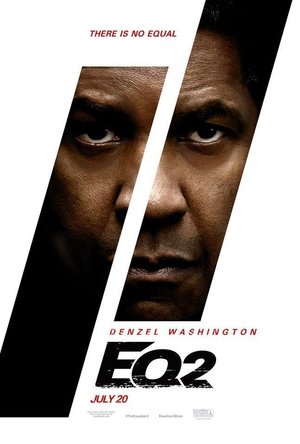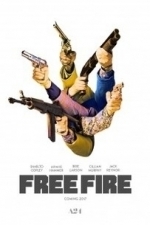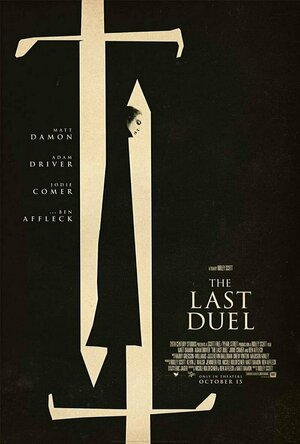
My Incredible Body - Guide to Learn About the Human Body for Children - Educational Science App with Anatomy for Kids
Education and Games
App
Winner of a Parents' Choice Silver Honor Award and awarded "Best App for Teaching & Learning" from...

Avenza Maps
Navigation and Travel
App
Get the App. Get the Map.® - Avenza Maps is a powerful, award-winning offline map viewer with a...

VideoShow PRO - Video Editor
Photo & Video and Utilities
App
VideoShow - The Best Video Editor and Movie Maker App Available VideoShow is ranked as the No.1...

Handy Photo
Photo & Video and Entertainment
App
***** “What does it do? Everything… quickly and easily. It’s really awesome!“ – Life In...

BeatBurn Treadmill Trainer - Walking, Running, and Jogging Workouts
Health & Fitness and Sports
App
BeatBurn uses lolo's exclusive BEAT-SYNC technology, changing the beat of your music to perfectly...

TwoNav GPS: Premium
Navigation and Sports
App
TwoNav brings you the best GPS application for smartphones, featuring dual navigation to ensure...
Bob Mann (459 KP) rated The Equalizer 2 (2018) in Movies
Sep 28, 2021
Washington returns here as the righter of wrongs, now working as a Lyft driver in Boston (clearly Uber either lost the bidding war or they were not considered to be as cool a brand anymore). Through his job he crosses paths with various troubled souls and is often able to help: sometimes with just an encouraging word; sometimes with more physical activity! By way of validating his good guy credentials, he also takes under his wing Miles (Ashton Sanders) – a local black kid at risk of being dragged into the Boston gang scene.
But this is all window-dressing for the main plot, involving bad guys (for reasons that escaped me) tidying up a lot of CIA loose ends in Brussels in a very brutal way. In charge of the investigation is Robert’s ex-boss Susan Plummer (Melissa Leo) and to help out further Robert has to ‘reappear’ to his ex-partner Dave York (Pedro Pascal). As in the first film, events lead to an explosive western-style showdown.
Directed again by Antoine Fuqua, the film oozes style from the impressive opening shots of a Turkish train, where the cinematography by Bourne-regular Oliver Wood is exceptional. The action scenes are well-executed, and includes a superb science experiment that will puzzle any viewer who thinks “hang on a minute – flour doesn’t burn”!
Reading again my review of the original film, I went off on a rant about extreme screen violence in sub-18 certificate films. There is certainly – as the British film censors (the BBFC) describe it – “strong violence” in this film, with some pretty brutal murder scenes. If anything though I thought the violence was a little less gratuitous this time around, which I welcome.
Denzel is the greatest asset of this film though. He acts up a hurricane (literally), and without his calm and powerful presence at the heart of the film, this would just be A.N.Other generic thriller. It’s also great that this time around the excellent Melissa Leo gets more screen time, as does her husband played by Bill “Independence Day” Pullman. (Is it just me that gets Mr Pullman confused with the late Mr Paxton? I spent all of this film thinking “Oh how sad” though all his scenes before I realised I was grieving for the wrong guy!). In terms of mistaken identity, this film has another in that a key villain Resnik looks far too much like Mark Wahlberg, but is actually Canadian actor Jonathan Scarfe.
Where the film stumbled for me was in having too many parallel “good deed” sub-plots. One in particular – you’ll know the one – feels completely superfluous, beggars belief and could have been excised completely for the DVD deleted scenes.
Do you need to have seen the first film? No, not really. There is exposition about McCall’s back-story, but if this was covered in the first film then I had completely forgotten it. It certainly didn’t detract from this as a stand-alone film.
A cut-above the norm, Washington’s solid performance makes this an entertaining night out at the flicks.
Bob Mann (459 KP) rated The Mercy (2018) in Movies
Sep 29, 2021
Lending him the money, under onerous terms, are local businessman Mr Best (Ken Stott, “The Hobbit“) and local newspaper editor Rodney Hallworth (David Thewlis, “Wonder Woman“, “The Theory of Everything“). With the race deadline upon him, Crowhurst is pressed into sailing away from his beloved wife Clare (Rachel Weisz, “Denial“, “The Lobster“) and young family in a trimaran that is well below par.
But what happens next is so ludicrous that it makes a mockery of whoever wrote this ridiculous work of fiction. Ah… but wait a minute… it’s a true story!
It is in fact such an astonishing story that this is a film that is easy to spoil in a review, a fact that seems to have passed many newspaper reviewers by (Arrrggghhh!!). So I will leave much comment to a “spoiler section” that follows the trailer (which is also best avoided). This is honestly a film worth seeing cold. What can I say that is spoiler-free then?
Firth and Weisz make a well-matched couple, and the rest of the cast is peppered with well-known faces from British film and (particularly) TV: Andrew Buchan and Jonathan Bailey (from “Broadchurch”); Mark Gatiss (“Sherlock”, “Out Kind of Traitor“); Adrian Schiller (“Victoria”; “Beauty and the Beast“).
The first part of the film is well executed and excellent value for older viewers. 60’s Devon is warm, bucolic and nostalgic. In fact, the film beautifully creates the late 60’s of my childhood, from the boxy hardwood furniture of the Crowhurst’s house to the Meccano set opened at Christmas time.
Once afloat though, the film is less successful at getting its sea-legs. The story is riveting, but quite a number of the scenes raise more questions than they answer. As stress takes hold it is perhaps not surprising that there are a few fantastical flights of movie fancy. But some specific elements in Scott Burns’ script don’t quite gel: a brass clock overboard is a case in point. What? Why?
And it seems to be light on the fallout from the race: there is a weighty scene in the trailer between Best and Hallworth that (unless I dozed off!) I don’t think appeared in the final cut, and I think was needed.
All in all, I was left feeling mildly dissatisfied: a potentially good film by “Theory of Everything” director James Marsh that rather goes off the rails in the final stretch.
This was a time where morality and honour were often rigidly adhered to – British “stiff upper lip” and all that – and seemed to carry a lot more weight than they do today. So some of the decisions in the film might mystify younger viewers. But for the packed older audience in my showing (Cineworld: this needs to be put on in a bigger screen!) then it was a gripping, stressful, but far from flawless watch.
I’d also like to take this opportunity to pay my respects to the film’s composer Jóhann Jóhannsson, who shockingly died last week at the ridiculously young age of 48. His strange and atmospheric music for films including “The Theory of Everything“, “Sicario” and (particularly) “Arrival” set him on the path to be a film composing great of the future. Like James Horner, another awful and untimely loss to the film music industry.
Bob Mann (459 KP) rated Free Fire (2017) in Movies
Sep 29, 2021
Set in Boston in 1978, an arms deal is going down in a deserted warehouse. Brokered by Justine (Brie Larson, “Room”) an IRA team headed by Frank (Michael Smiley, “The World’s End“) with his business guy Chris (Cillian Murphy, “Inception”, “Batman Begins”) are on the buying side. As ‘roadies’ they’ve brought with them a couple of crack-head friends Stevo (Sam Riley, “Brighton Rock”, “Maleficent“) and Bernie (Enzo Cilenti, “The Martian“) who are far from stable.
On the selling side is South African dealer and “international asshole” Vern (Sharlto Copley, “Elysium“), his suave and wisecracking protector Ord (Armie Hammer, “The Man From Uncle”) and Vern’s right hand man Martin (Babou Ceesay, “Eye in the Sky“). What connects all of these individuals is that no-one likes or trusts anyone else.
Unfortunately, one of Vern’s van drivers is John Denver-lover Harry (the excellent Jack Treynor, “Sing Street”) who has very recent personal history with Stevo. The fuse is lit, and when the two meet chaos ensues: in the words of Anchorman’s Ron Burgundy, “That escalated quickly”!
And, for a 90 minute film, that’s basically it. If you think after viewing the trailer “there must be more to the film than this”…. you’re wrong!
However, what there is of it is enormously entertaining. Played ostensibly for laughs, with very very black humour and an F-word and a gunshot in every other sentence, some of the characters – notably those played by Sharlto Copley, Arnie Hammer and Brie Larson – have some hilarious dialogue. The star turn for me though was Jack Treynor who was just so impressive as the ‘lost at sea’ brother in the delightful “Sing Street” and here delivers a stand-out performance as another brother on a mission… this time a mission of vengeance. You are waiting throughout the film for the inevitable showdown between Harry and Stevo – – and when it comes it is both bloody and memorable.
A cracking 70’ soundtrack, put together by the Portishead duo of Geoff Barrow and Ben Salisbury, involves 70’s classics by Credence Clearwater Revival, John Denver and The Real Kids and it’s hammered out at top volume over the action. The downside of this effect is that – for my old ears at least – it sometimes make some of the dialogue hard to follow.
As a policing exercise, the film clearly has merit. In the same manner as Schwarzenegger’s “Running Man” put criminals in an arena to cull them, so this must have reduced the crime rates in both Boston and Belfast no end! While some may not approve of the levels of violence on show, it is all done in a highly cartoonish way: like a “Tom and Jerry” cartoon, or “Home Alone”, everyone seems to get shot multiple times and yet (in the main) is still active and mobile. All of this makes criticism of the performances something of a waste of time, but I would comment that some of the acting is of the “over the top” variety: surprisingly, I found some of Oscar winner Brie Larson’s scenes falling into this category and snapping me out of the narrative at times.
But overall, my evaluation is now done and I am rooting on the side of it being a brash and exhilarating minor masterpiece. Yes, it’s one-dimensional. Yes, it is virtually impossible to feel any empathy with any of the characters, as they are all universally loathsome. But it’s a movie whose flaws are forgivable based on the characterisation and the cracking good script by long-term collaborators Ben Wheatley and Amy Jump.
Tight as it is within its 90 minute running time, I very much doubt you will be bored.
Bob Mann (459 KP) rated The Last Duel (2021) in Movies
Oct 28, 2021
Plot Summary:
Widowed Jean de Carrouges (Matt Damon) is a battle-hardened warrior, loyal to King Charles VI of France (Alex Lawther). He is becoming progressively estranged from his one-time friend Jacques Le Gris (Adam Driver), a personal favourite of Normandy ruler Pierre d’Alençon (Ben Affleck).
But Carrouges’ lovely new wife Marguerite (Jodie Comer) accuses Le Gris of a terrible crime. But who is telling the truth? Only God can decide, as Carrouges and Le Gris must duel to the death.
Certification:
US: R. UK: 18.
Talent:
Starring: Jodie Comer, Matt Damon, Adam Driver, Ben Affleck.
Directed by: Ridley Scott.
Written by: Matt Damon, Ben Affleck and Nicole Holofcener.
“The Last Duel” Review: Positives:
It’s an intriguing script – the first collaboration between Damon and Affleck since their Oscar-winning “Good Will Hunting” from 25 years ago. It presents 3 different versions of “the truth” from three different perspectives. (One of these – Marguerite’s version – is suggested as being the ‘actual’ truth through a clever delayed fade of the chapter title). Many of the same scenes are repeated in each variant: sometimes with obvious differences in fact; sometimes with the slightest nuance of tone or expression; and sometimes with no change to the visuals, but with the benefit of hearing the dialogue being spoken. Very clever.
“Killing Eve”‘s Jodie Comer is just brilliant here. She is the master of nuanced expression, and she genuinely deserves an Oscar nomination for this work. Combined with her great and fun role in the surprise summer hit “Free Guy“, Comer is surely on a path to movie acting greatness.
Damon, Driver and Affleck also have great fun with their roles: they are all eminently watchable and this is a study in acting greatness. But I particularly loved Alex Lawther’s turn as the king: all excitable childish power in the body of a young adult.
Battle scenes and the final duel are delivered in visceral nature reminiscent of Ridley Scott’s famous battle and arena scenes in “Gladiator”.
Excellent production design and special effects on show here. Another Oscar nomination perhaps? The movie was filmed in the Dordogne region of France and also – after a 2020 Covid lockdown – in Ireland.
Negatives:
At two and a half hours it’s another long film (is October 2021 designated long film month??). And although the nuances between the different versions of reality are fascinating, there’s a degree of tedium involved in rehashing the same scenes (in some cases) for the third time. Arguably I think a few of these re-versions could have been omitted to reduce the bladder-testing run time.
Summary Thoughts on “The Last Duel”
This is Ridley Scott back on top form again. I found this a gripping watch. As the film opens, we are teased with the start of the ‘boss level’ duel between Damon and Driver. But these final dramatic scenes are the emotional lynchpin of the movie since only then do you understand the background and the ramifications of the fight.
Evidently, 14th Century France was NOT a great time for sexual equality. Women were merely chattels, denied not only fair play and self-determination, but also the bedroom niceties of foreplay and, in most cases, orgasms. As the story was based on real events, the courage and determination of Marguerite of Carrouges were extraordinary. And Jodie Comer’s portrayal of her wonderfully demonstrates, yet again, why she is the UK’s most exciting acting export for many years.



